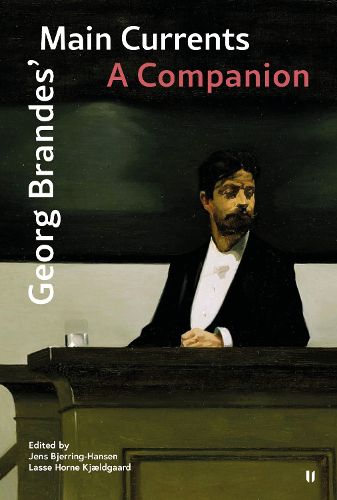Readings Newsletter
Become a Readings Member to make your shopping experience even easier.
Sign in or sign up for free!
You’re not far away from qualifying for FREE standard shipping within Australia
You’ve qualified for FREE standard shipping within Australia
The cart is loading…






"Georg Brandes' Main Currents became a kind of business card, or a letter of introduction, allowing Brandes to enter numerous national public spheres. Around 1900, he was, indeed, one of Europe's leading intellectuals, both as a scholar, a cultural critic, and a political activist. 'It is one of those books creating a swallowing gulf between yesterday and today', Henrik Ibsen wrote to Georg Brandes from Dresden, in 1872, upon reading the first tome of Main Currents.Due to the many agendas and layers, the impact of the work is multifaceted. In literary studies, the author is considered a pioneer in the field of comparative literature studies (Regis Boyer: 'Georg Brandes, le pere de la litterature comparee', Revue de litterature comparee, 2013:2, p. 135-144). Remarkable is also Brandes' interdisciplinary views, including not least his belief in the relevance of scientific methods and views for the cultural sciences (positivism and Darwinism). As a literary scholar, Brandes' ambition was to deploy the tools of his discipline in the service of big causes, such as the promotion of freedom, peace and modernity. In the Danish debate, he constantly challenged national narrow-mindedness and worked to establish a dialogue between nations and cultures. In a wider context, he helped to put not only Denmark, but also the entire Scandinavian region on the global literary map. All of this was made possible by the publication of Main Currents."
$9.00 standard shipping within Australia
FREE standard shipping within Australia for orders over $100.00
Express & International shipping calculated at checkout
"Georg Brandes' Main Currents became a kind of business card, or a letter of introduction, allowing Brandes to enter numerous national public spheres. Around 1900, he was, indeed, one of Europe's leading intellectuals, both as a scholar, a cultural critic, and a political activist. 'It is one of those books creating a swallowing gulf between yesterday and today', Henrik Ibsen wrote to Georg Brandes from Dresden, in 1872, upon reading the first tome of Main Currents.Due to the many agendas and layers, the impact of the work is multifaceted. In literary studies, the author is considered a pioneer in the field of comparative literature studies (Regis Boyer: 'Georg Brandes, le pere de la litterature comparee', Revue de litterature comparee, 2013:2, p. 135-144). Remarkable is also Brandes' interdisciplinary views, including not least his belief in the relevance of scientific methods and views for the cultural sciences (positivism and Darwinism). As a literary scholar, Brandes' ambition was to deploy the tools of his discipline in the service of big causes, such as the promotion of freedom, peace and modernity. In the Danish debate, he constantly challenged national narrow-mindedness and worked to establish a dialogue between nations and cultures. In a wider context, he helped to put not only Denmark, but also the entire Scandinavian region on the global literary map. All of this was made possible by the publication of Main Currents."